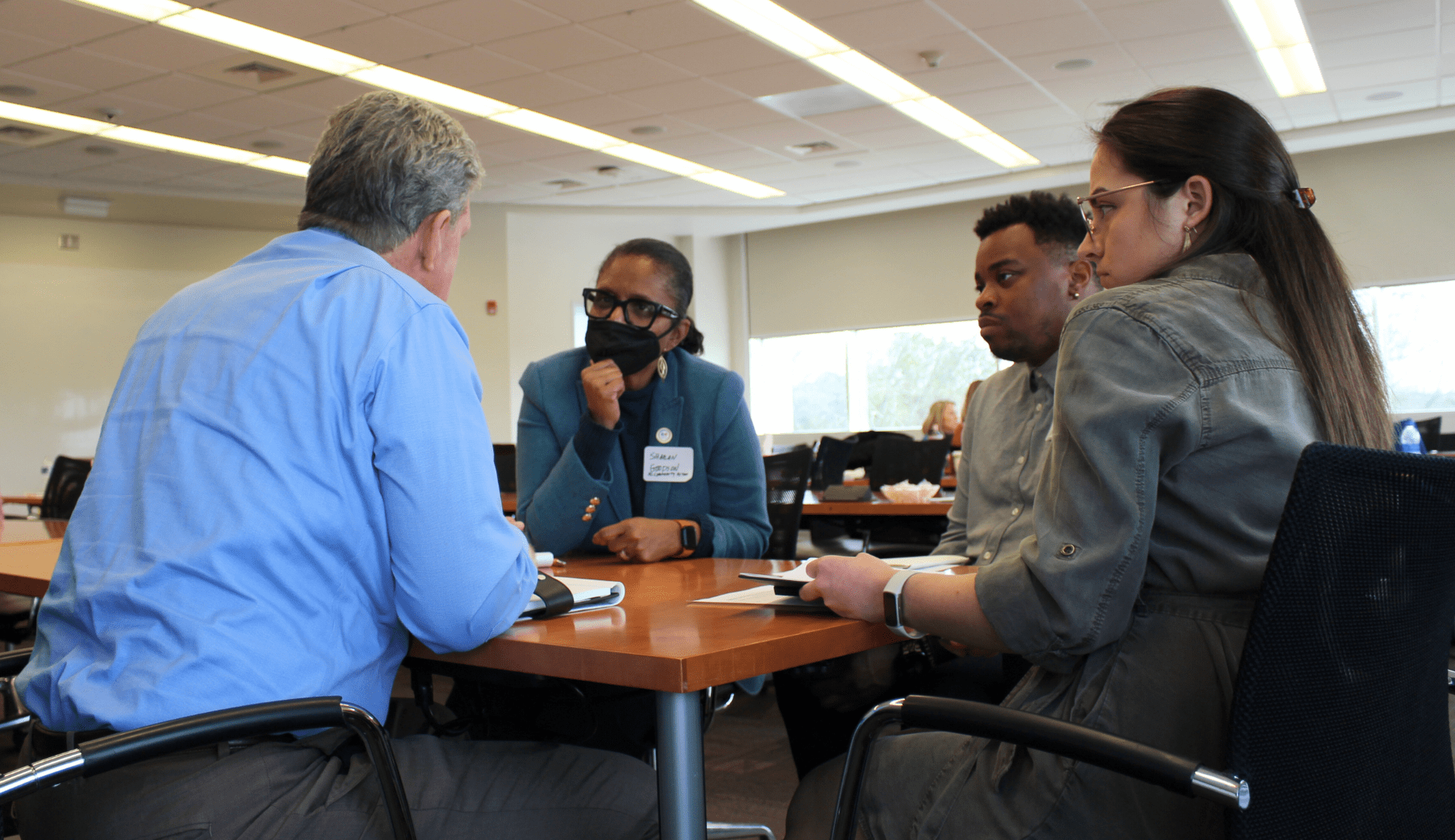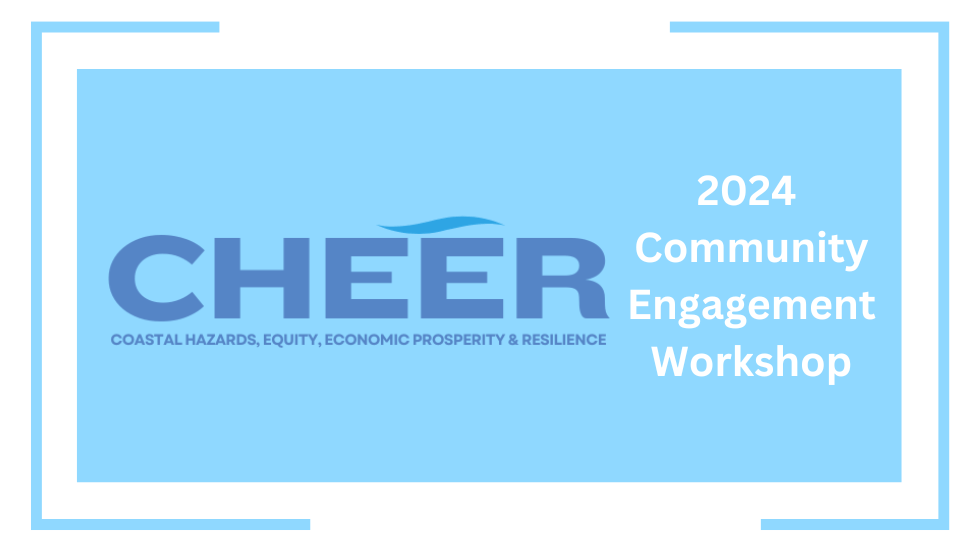Summary
Representatives from six of the Hub’s community partner organizations gathered at the Renaissance Computing Institute in Chapel Hill, North Carolina, on February 29 to attend CHEER’s first Community Engagement Workshop.
The event’s main purpose was to provide an overview of CHEER’s goals and identify ways in which the Partners and Hub can mutually support one another. The workshop had four key objectives. The first three—identifying urgent community needs for hurricane risk, reviewing preliminary qualitative partner data, and planning steps for data collection at the household level—were met to enhance the ways community partners and the Hub co-produce knowledge about community issues related to hurricane risk. The final goal was to strengthen the relationship between the community partners and the Hub as a whole by building trust between the CHEER team and community partners.
Community Engagement and the Hub – A Symbiotic Relationship
One of the Hub’s overall goals is empowering stakeholders and community members using a bottom-up approach. When it comes to hurricane resilience efforts, most have used a top-down approach in which agencies or governments have determined what communities “need.” Instead of this approach, the Hub studies how stakeholders naturally make decisions and then designs a system to produce the best solutions that align with stakeholders’ natural behavior. That’s where this exchange comes in.
Engagement is integral to CHEER. The overall goal of this collaboration is to ensure that the knowledge, data, and insight gained from the project are relevant for the Community Partners and the clients and community members that they serve. Working with the Hub’s community partners allows this to happen, but fostering this relationship begins with understanding their specific needs.

The workshop’s in-person venue allowed community partners to actively engage with similar organizations from the Hub’s three case study areas: Eastern North Carolina and Port Arthur and Houston, Texas.
These organizations, which already have established relationships with the populations they serve, connect the Hub to each of its three case study areas. Establishing this rapport is crucial. In a practical sense, these partners facilitate researchers’ unique access to communities regularly exposed to hurricane risk. This access is what allows the Hub to recruit participants, collect data, and engage with the community. Additionally, the Partners provide a boots-on-the-ground perspective, which contextualizes specific behind-the-scenes challenges residents face that the Hub might otherwise be unaware of. This exchange, which was highlighted during the community partners workshop, helps inform CHEER research and enhances its practical outcomes in case study areas.
An Open Dialogue
Notably, the event was the first time the Hub’s community partners met collectively in person. Representatives from Civic Heart Community Services, North Carolina Community Action Network, Texas Access to Justice Foundation, The Restoration Team, Coastal Community Action, and Pamlico County Disaster Recovery Coalition attended the workshop.
Representatives from six of the Hub’s community partners spent the day engaging in conversation and sharing their experiences in disaster response and recovery.During the first portion of the workshop, Dr. Rachel Davidson, the project’s principal investigator, provided an overview of research objectives and progress of the overall Hub. Dr. Sarah DeYoung, the project’s co-principal investigator and Community Engagement Director, shared an overview of the early qualitative findings from interviews with the Partners so that they could provide feedback on those preliminary findings. Partners also had the opportunity to do a hands-on proposal practice project for the CHEER seed grant projects, with feedback from their peer partners and CHEER researchers.
Representatives from six of the Hub’s community partners spent the day engaging in conversation and sharing their experiences in disaster response and recovery.
During the second portion of the workshop, partners identified new and emergent needs for their organizations that inhibit their ability to meet the needs of the communities they serve. They also talked about critical instances of success or creative approaches they have used to overcome organizational barriers during the COVID-19 pandemic or in navigating other crisis scenarios. Throughout these conversations and activities, the Partners also networked with one another as peer organizations dealing with similar challenges.
While each community partner serves one of the Hub’s case study areas, all found common ground in their experiences and shared work with the Hub. Partners expressed that they gained an enhanced understanding of CHEER’s research objectives, and they are enthusiastic to continue engagement throughout the lifespan of the Hub and beyond.
To learn more about our community partners, visit the Hub’s “Partners” page.


